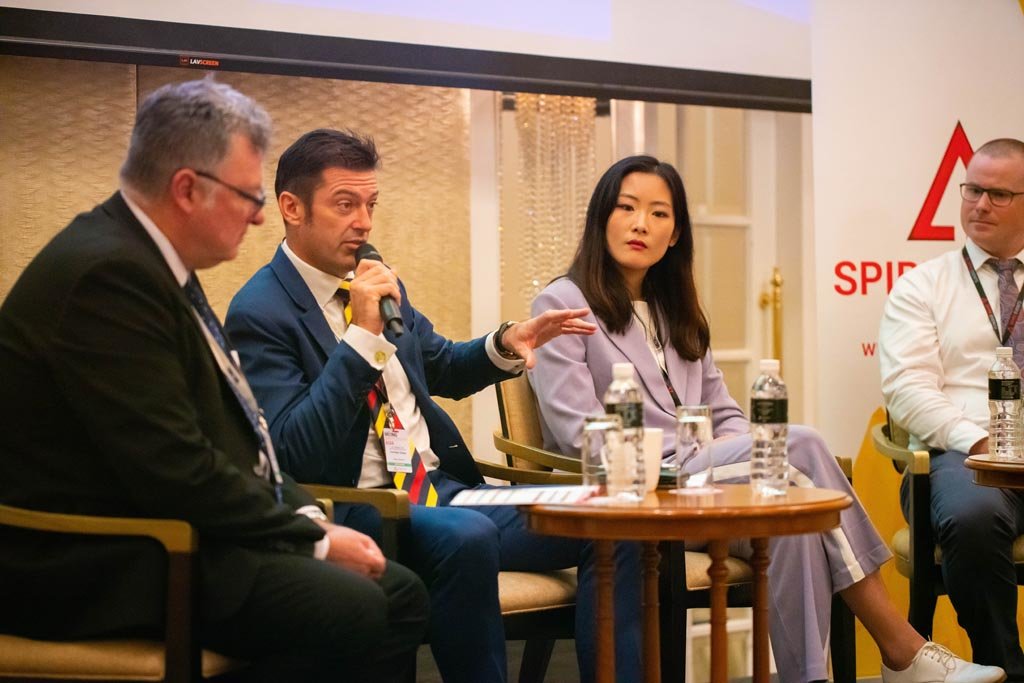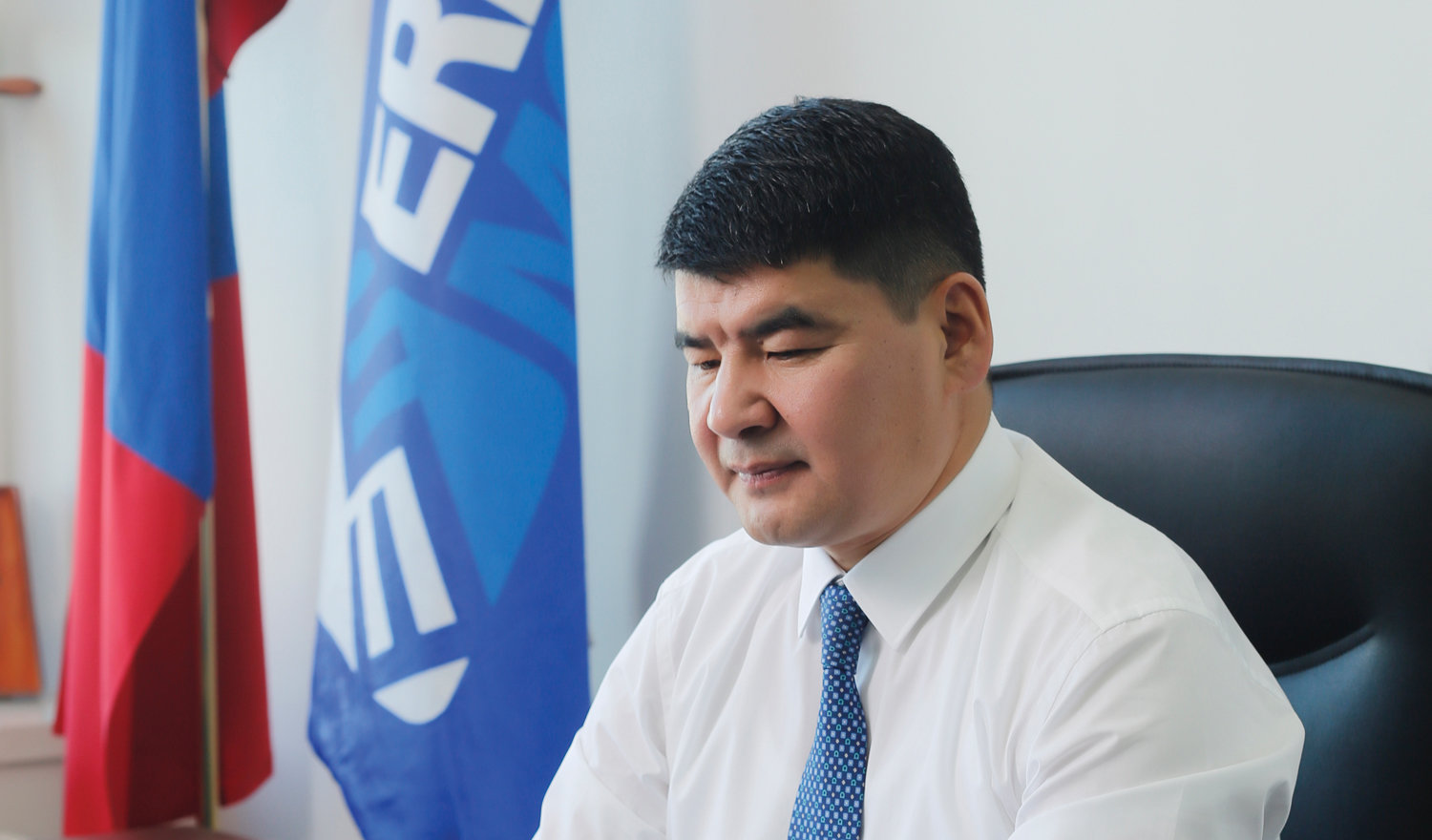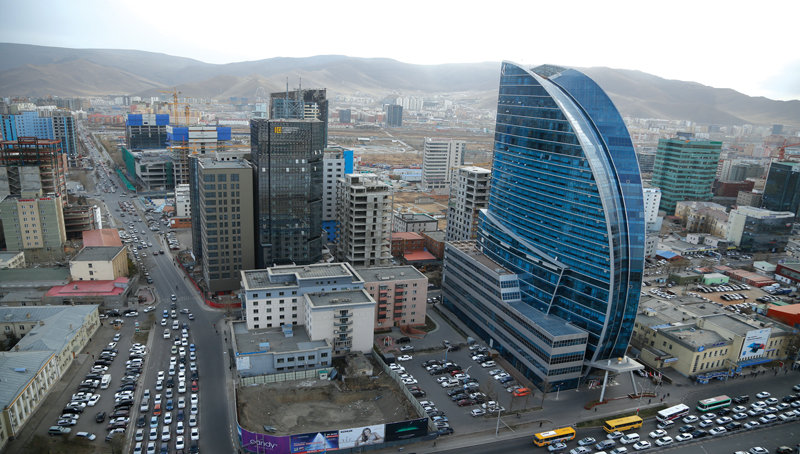Recent news
The 2020 budget: Spending splurge but are we sure we have the money?
Taking full advantage of the surge in mineral exports, the ruling Mongolian People’s Party has prepared the 2020 budget as a typical election year exercise, hoping to impress voters by generous public expenditure. No one should be surprised that all IMF warnings not to give in to electoral compulsions and pleadings to stick to a tight fiscal policy and improve fiscal discipline have been ignored. The Finance Minister may well say that the budget shows a rise in revenue also and even if he spends more, at 5.1% of GDP the estimated deficit is still within acceptable limits.
New ‘Coal in Asia’ segment to be launched at the 6th Mining Investment Asia
Coal is a dominant fuel in the rapidly growing economies of South East Asia even amidst a global move towards clean energy. Within the Asian region, India, China and Indonesia play major roles both as consumers and producers of coal. Hence, ‘Coal in Asia’ seeks to focus on what lies ahead for coal in the region and the key drivers for transformation. Major national and private coal mining companies are confirming their participation, with key stakeholders such as Indonesia Coal Mining Association (APBI-ICMA) already supporting this event.
What was said at Discover Mongolia 2019
We give below some salient points in the speeches and presentations at the last Discover Mongolia, as compiled by E.Odjargal at the 17th session of the annual international conference, intended to spread information and awareness about Mongolian mining and attract foreign investment.
G.Nandinjargal, State Secretary in the Ministry of Mining and Heavy Industry, who formally opened the event:
“The Government of Mongolia is working on creating a friendly, open and transparent legal environment for investors, ensuring economic stability and creating a system that would protect business interests. Despite the need to diversify the economy, mining will undoubtedly continue to be Mongolia’s leading industry in the next 20 to 30 years. At present, data is available on mineral resources in 20% of the total territory of Mongolia.
Redpath uses its global experience to meet OT Underground challenge
Redpath Mongolia is celebrating the completion of 15 years of presence in Mongolia. Its biggest responsibility here has been the lateral development of the Oyu Tolgoi underground mine, and Scott Hayne, Executive Director, tells MMJ about the challenges that have cropped up and how he is confident that the company’s wide experience will lead it to success, with the help of a skilled and motivated Mongolian workforce.
Your company is well known in the global mining industry. How important are your Oyu Tolgoi operations in terms of your total responsibilities? What are some other global projects that you now have?
Redpath is currently involved with over 90 projects globally, spanning 13 countries. Our employee base in Mongolia accounts for just over 15% of Redpath’s workforce worldwide.
Being on the grey list is a red signal to the economy
As if we do not already have enough economic worries, comes the announcement on 18 October that The Financial Action Task Force (FATF) has identified Mongolia as a “jurisdiction with strategic AML/CFT (anti-money laundering/combating the financing of terrorism) deficiencies”, a move that is commonly called grey listing. FATF is an intergovernmental organization to develop policies to combat money laundering and terrorism financing.
Being on the grey list is not as bad as being blacklisted; the two can be compared to being shown a yellow card and a red card respectively in a football match, and FATF did say Mongolia has already developed an action plan to address the most serious deficiencies and has shown high-level political commitment to it. But until we come off the list, it has the potential to pose serious challenges to our economic growth.
“2021 would see significant expansion and diversification in the activities of Erdenes Mongol”
P. Gankhuu, CEO of Erdenes Mongol, tells G. Iderkhangai why it is right to keep the company directly under the Prime Minister and how the proposed mineral wealth fund, managed on purely professional principles, will work for the benefit of all Mongolian citizens.
How do you see the future of projects which are joint ventures between the Government and the private sector?
Erdenes Shivee Energy and Beren Group have established a joint venture company called Erdenes Steel in Dornogobi aimag, with the two sides owning equal share. The Development Bank is the financial guarantor for Erdenes Shivee Energy in the project, which plans to annually produce 300,000 tonnes of cast iron.
Turning the Development Bank into a bank for development
E.Odjargal talks to G.Amartuvshin of Development Bank of Mongolia, and finds that only months after taking over as Executive Director, he is putting in place big changes and envisions radically different ways for the institution to work more professionally, free of political control.
What are your priorities at DBM?
There are three.
First, to improve the internal organization and governance practices. Regulations and lending procedures have been streamlined. DBM used to be criticized for delay in acting on loan requests from companies and, often enough, these could not even be traced. Now the entire process has been made more transparent. Second, the credit quality. Six cases of unpaid loans have been transferred to the prosecutor.
“Arkhangai will survive and prosper without mining”
Arkhangai wants to be an aimag without any fresh mining. Kh. Tsevegmid, a reporter with The Arkhangai Mirror, asks its Governor, Ts. Monkhnasan, about the decision and how it is being implemented, and about the present mining situation, especially as relates to reclamation, there.
What is the policy of the aimag on mining?
Both the local parliament and I myself have taken the policy that Arkhangai must develop without any fresh mining. The initial impetus came in 2015 with the amendment to the long-named law, and we intend to keep more mining out as we try our best to quickly make use of the other opportunities for our aimag to develop, such as by promoting tourism, animal husbandry and industry.
Discover Mongolia-2019
Discover Mongolia-2019
Minerals and Mining Business Summit. September 27, 2019 Shangri La Hotel, Ulaanbaatar, Mongolia
9th Coal Mongolia 2019
9th Coal Mongolia 2019
International Coal Trade, Investment Conference and Exhibition, September 5-6th, 2019, Ulaanbaatar
The troika that runs Mongolia
B.Tugsbilegt
The President, Parliament, and the Prime Minister – these are three highest powers that run our country. Unfortunately, the troika do not always take their steps in unison, as, say, is seen from the way each wishes to leave their own mark on the mining sector, which is the mainstay of the national economy, and could do with some coordinated support. The referendum will show whether the people want our natural resources as something like the state’s public property. Similarly we could have a “state’s public plan” for the mining sector, if only the three supreme centres of state power agreed on what to do. Elections are not far away and like all governments wishing to hold on to power, our present one under U.Khurelsukh has started showing off how brave, decisive and determined it can be. What the Prime Minister did on 13 August would surely win him the “Year’s shock worker” award, if there was one.
“The priority is faster and easier border crossing for our coal”
J. Zoljargal, CEO of Mongolian Coal Association, is not too enthusiastic about expensive infrastructure development projects as, to him, what exporters need most is better facilities to take their coal to the buyer in China faster and freely. In a wide-ranging conversation he tells B.Tugsbilegt that coal prices would not always stay high, but in a positive development Chinese state policy is bringing buyers geographically closer to Mongolian coal mines.
What is the current coal export situation?
Export volume in the first half of the year was 1.5 percent less YoY, down from 19 million tonnes in 2018 to 18.6 million tonnes, but this is a marginal drop and our goal for the full year is to achieve 42 million tonnes.
Move to make major changes in Constitution
In keeping with the hot days of summer, Mongolians are carrying out a heated debate on amending the Constitution, though their mood is frequently not as sunny as it is outside. The Parliamentary Office has been collecting people’s opinions and views since June 25. Members of parliament have been touring in their electoral districts, sampling popular response to the bill which, if approved, would give us a significantly altered Constitution on July 1, 2020, as promised in the Action Plan of the Mongolian People’s Party, which has majority in the present Parliament.
This is not the first time the Constitution has been sought to be amended in a major way, though all such efforts have failed up to now, for various reasons. The Constitution was adopted in 1992, to help establish a humane, democratic, fair and compassionate society and, more importantly, to encourage an independent political system in the country which had just recently decided to abandon the Soviet model.
Miners pledge to be responsible
Major companies in the extractive industry in Mongolia recently came together to launch a campaign to encourage the practice of responsible mining. Among those who attended the meeting at Tuushin Hotel were those representing Oyu Tolgoi, Erdenet Mining, Energy Resources, Aspire Mining, SouthGobi Sands, Terra Energy and Baganuur. Later, they all joined the Responsible Mining Voluntary Code.
The campaign was initiated by the Mongolian National Mining Association (MNMA) and is to be implemented together with the Ministry of Mining and Heavy Industry. Those who joined the codex and signed a memorandum of understanding (MoU) included Kh. Badamsuren, Director General of the state-owned Erdenet Mining Corporation, Armando Torres, CEO of Oyu Tolgoi, G. Battsengel, CEO of Energy Resources, Z.Gan-Ochir of Aspire Mining, Ch. Munkhbat, President and CEO of SouthGobi Sands, Sam Bowles, CEO of Terra Energy, and O.Tuya, Vice Director of Baganuur JSC. The MoU has 30 clauses in 5 sections.
Railways will be on Putin’s agenda
Russian President Putin will be in Mongolia to attend the 80th anniversary celebrations of our two countries’ joint victory in the battle of Khalkh Gol. The visit is expected to take bilateral relations to a new phase and there is talk that a comprehensive strategic partnership agreement will be signed during the visit.
Much has happened in the five years since Putin was last here. For example, the agreement to establish the Mongolia-Russia-China Economic Corridor was signed in 2015 at Tashkent; Mongolia and Russia signed a 25-year interim discount tariff agreement for railway transit; Russia re-opened a transport corridor through its territory after nine years; and a consortium of Russian companies led by Russian Railway made a bid for the Tavantolgoi deposit along with global mining giants; and when coal prices were at their highest ever, Mongolia made a special offer to the Russian side.
“We are not underplaying herders’ concerns”
Even as mining in Omnogobi lifts the economy there and at the national level, herders in the aimag continue to feel that the steps taken by local authorities have failed to arrest its negative impacts – specially on water availability, pasture lands and the environment. N. Enkhtsetseg finds out from N. Naranbaatar, Governor of the aimag, what the actual situation is and how issues arising from increased mining are tackled.
REQUEST FOR EXPRESSION OF INTEREST (CONSULTING SERVICES – FIRMS SELECTION)
The Ministry of Mining and Heavy Industry of Mongolia now invites eligible consulting firms (“Consultants”) to express their interest in developing a detailed feasibility study on the construction of a copper concentrate smelting and refining plant in Mongolia. Interested Consultants shall meet the criteria and requirements specified in Articles 14, 15 and 16 of Public Procurement Law of Mongolia and submit the following documents to indicate their capacity:
“An investor prefers things to be more predictable, less uncertain”
David Sproule, Ambassador of Canada to Mongolia, tells E.Odjargal that his country is eager to share its experience in mining but investors will not come here until they feel the environment is stable, with rules for them not changing with every change in government. He also sees risks as being an inevitable corollary of ownership, and would prefer a government not to own mines, but to be satisfied with receiving taxes and royalties.
Let’s start with the 8th round table meeting between our two governments in Ulaanbaatar on 4 June. What important decisions were taken to increase cooperation in areas such as the economy, trade, investment, mining, and infrastructure, and what was noted as the major accomplishments of the past cooperation?
We have these meetings every two years. We reviewed the full range of issues, programmes and projects to make sure both countries are working hand in hand to get towards a common goal. The recent meetings were very successful.
GOH prepares to find coalbed methane
Under a Production Sharing Agreement (PSA) with The Mineral Resources and Petroleum Authority GOH LLC, an Australian company, will conduct exploration activities for coalbed methane gas in Omnogobi aimag. The environment will be much safer if the methane is stopped from escaping into the air. Ch. Sumiya talks to B. Achitsan, General Manager of GOH, to find out more about the project.
The economy gains pace, but the road ahead is not smooth
Propped up by the IMF bailout programme, the economy seems stable on its feet. Just one year is left before the programme is wrapped up, and we are already ready to say ‘Bye Bye Stand-By’, as MMJ did in its September 2010 issue, when the previous bailout programme was about to end. Thanks to the programme, forex reserves should increase dramatically, growth should be stabilised at between 6 and 8 percent, debts should be reduced and fiscal discipline should be an accepted way of life. However, the tranche of money following the IMF’s sixth review is still awaited, as some work remains to be done in regard to checking banks’ capitalization and its sources. That money should have come four months ago but politics intervened.



















